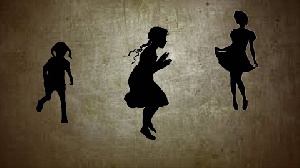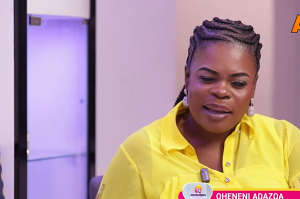Key stakeholders in education have met to deliberate on strategic approaches to educating girls through increased access and provision of relevant tools to enable them break the circle of poverty.
Organised by the World Education Inc. the meeting was also used to orient stakeholders and representatives of Ministries of Education, Local Government, Gender Children, and Social Protection among others on the DFID funded Strategic Approaches to Girls’ Education (STAGE) Project and its expected outcomes.
A welcome address by the Country Director, Susan Adu-Aryee via a recorded video message highlighted the importance of education and emphasized World Education’s commitment to the principle that education is key to development.
She said an increase in access to education could improve the capacities of the girl child and empower her with the requisite tools to get out of cyclical poverty.
Mrs Adu-Aryee said the STAGE project would strive to help the most marginalized girls in remote areas in the country by offering them an opportunity to acquire formal and non formal education.
Miss Lucy Aklaku, World Education’s Senior Project Coordinator, in her presentation on the scope of the project, said the five-year project would enable beneficiary girls to acquire literacy, numeracy and life skills through an accelerated learning programme, which will prepare them to transition to educational and employment pathways.
She said the project will be implemented through a holistic approach using advocacy, providing beneficiary networking opportunities as well as behaviour change communication.
In addition, the project will make use of the national child protection hotline, peer education, transition support for beneficiaries, establishment of learning centres, training of facilitators among others to reach its targets.
Miss Grace Wood, Education Adviser at DFID, acknowledged the contribution made by the stakeholders to ensure a holistic quality education for marginalized girls in the country and commended World Education and her partners for the big task they had taken on.
She reiterated that education is a basic human necessity that provides young girls with the necessary tools to build a life outside the home.
Mr Charles Otoo, the Team Leader of the Management Unit of Crown Agents on the DFID/USAID, funded Complimentary Basic Education (CBE) called on all downstream partners and local NGOs to sensitise communities on the importance of education and the challenges faced by the marginalized girls being targeted by the STAGE Project.
Mrs Catherine Appiah-Pinkrah, Director for Pre-Tertiary at the Ministry of Education, who chaired the meeting, called on the stakeholders to incorporate some of the strategies discussed at the meeting to the benefit of the girl child and to ensure sustainability.
She urged all other Civil Society Organisations to come together and advocate for inclusion and safeguarding of girls with disability in society and urged parents to send their girl child to school, adding that “Education is a shared responsibility”.
Proposed by World Education Inc, the Strategic Approaches to Girls’ Education (STAGE) project, under the “Leave No Girl Behind (LNGB)” window, a new funding window under DFID’s Girls’ Education Challenge (GEC) will combine two mutually supportive tracks for highly marginalized girls, formal school and informal learning.
This is to bring a holistic approach to the education of girls and lower the barriers that they face at the individual, community, school, and system levels.
The STAGE Project will specifically target areas in the country where high levels of extreme poverty, in combination with deep-seated traditional and social norms exist, resulting in negative impacts on women and girls. STAGE target girls in these areas who are highly vulnerable and systematically marginalized due to factors such as early marriage, pregnancies, disabilities, and among others.
The programme aims to leverage the experience of its partners, utilize lessons from previous projects, and engage stakeholders at all levels to guide Ghana to the SUSTAINABILITY of project outcomes.
World Education, Inc. (WEI) is a private voluntary organization based in Boston, Massachusetts, with a mission to meet the needs of vulnerable and disadvantaged populations through social and economic development programmes.
General News of Thursday, 15 November 2018
Source: ghananewsagency.org













